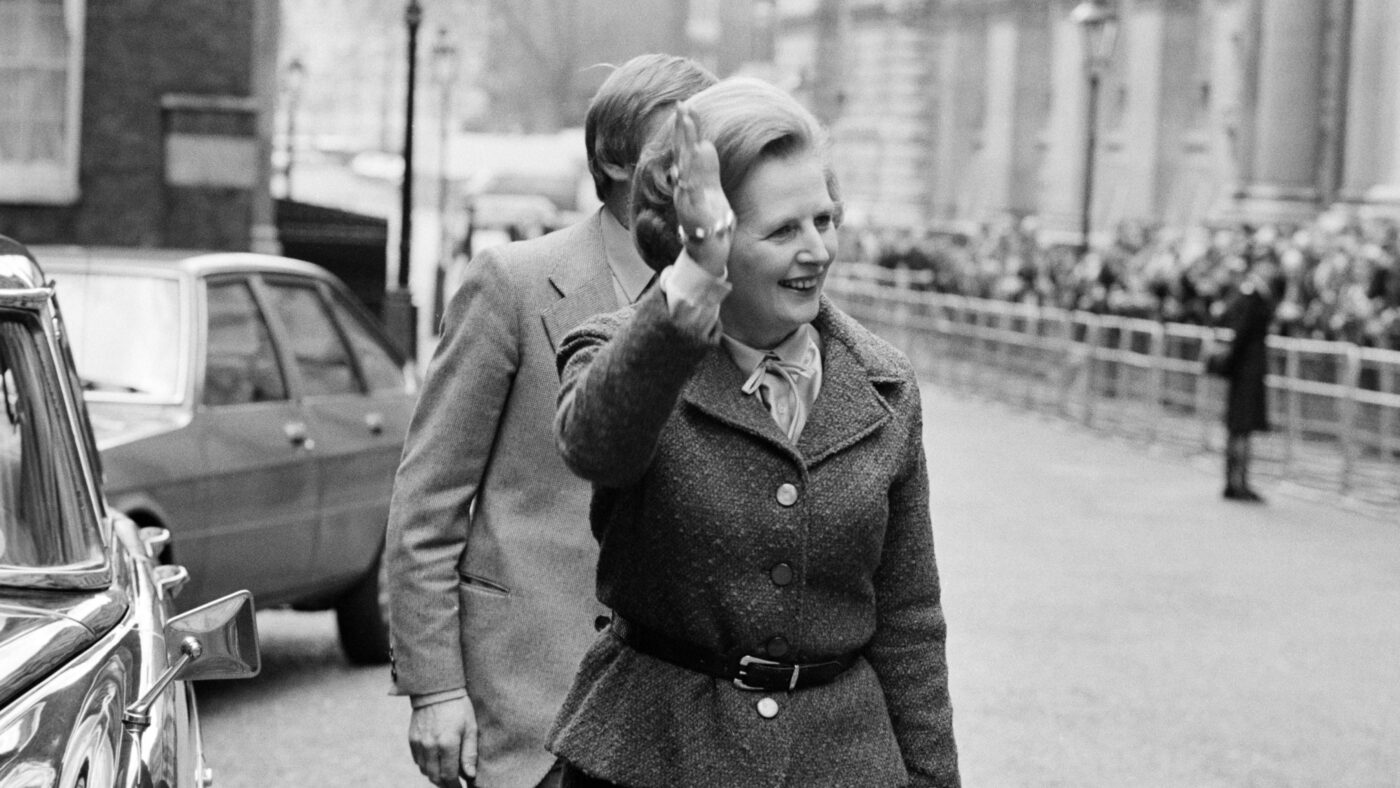When Nigel Farage announced earlier this week that he had changed his mind and would offer himself as a candidate for Parliament, he described the election campaign so far as ‘boring’. Many would disagree: from the Biblical weather of the Prime Minister’s announcement, through national service and Keir Starmer’s renewed enthusiasm for nuclear weapons, to a purge of left-wing candidates in the Labour Party, there has been plenty to hold the public’s interest. It has, however, been depressing and dispiriting.
The Opposition is bound to dwell on the negative. It is a fundamental element of the challenger’s playbook that the nation is in a terrible state and the government should be held to blame. The answer, in Starmer’s mind, is that it’s time for a change.
It is striking, however, that the Conservative Party’s messaging has often been downbeat too. When the plan to introduce a form of national service was unveiled last month, the Home Secretary, James Cleverly, justified it in part because ‘too many young people are living in their own bubble, whether that’s a digital bubble or a social bubble’. Equally, Kemi Badenoch, wearing her hat as Equalities Minister, pledged to amend the Equality Act 2010 to make sure sex was defined as ‘biological sex’, a measure the Prime Minister defended on the ground of the ‘safety of women and girls’.
Discontent seems emblematic of the age. Society is uneasy and disunited, and the dominance of identitarian politics inevitably emphasises division over solidarity. But the Conservative Party – and the conservative movement as a whole – cannot succeed simply by pointing out everything that is wrong and shaking its head in sympathy with voters. The only way it will generate the kind of broad-based support needed to win is to balance an acknowledgement of what is wrong with an optimistic, upbeat programme for improving the state of the nation and making society better.
Margaret Thatcher knew this. Although in political folk memory she is often recalled as a stern, hectoring figure, she understood, from the earliest days of her leadership of the party, that voters wanted something to believe in and hope for.
Immediately after her victory in the leadership contest in February 1975 was announced, Thatcher gave a press conference at Conservative Central Office in Smith Square. Her tone and rhetoric are instructive. She was in understandably high spirits: asked how she felt about taking on the prime minister, Harold Wilson, in the House of Commons, she shot back: ‘About the same as he will facing me. Next one, come on!’ Another journalist quoted the opinion of a Labour minister that her election would condemn the Conservatives to another 10 years in opposition:
I think they are wrong. It seems to me that Mrs Gandhi’s election in India ensured the election of her party for a very long period in office.
Then she was asked about her political philosophy. This was less than a year since the Heath government had fallen after an election called on the question of ‘Who governs Britain?’, and the idea that the country was ‘ungovernable’ was widely discussed.
Thatcher had no truck with such doom-laden talk. ‘You don’t win by just being against things, you only win by being for things and making your message perfectly clear.’
The obvious question followed, what was it that she and the Conservative Party were for? She had no trouble supplying a crisp, concise, comprehensive answer:
For a free society with power well distributed amongst the citizens and not concentrated in the hands of the state. And the power supported by a wide distribution of private property amongst citizens and subjects and not in the hands of the state.
It was an astonishing performance by someone with less than four years’ experience in cabinet, never at the centre of power. And it is one which Conservatives must learn now.
Echoing the dissatisfaction of the electorate is the political equivalent of a comedian’s cheap laugh: it provokes an instant response and makes people agree with you. But it is not nearly enough. When the country has seemed to be in decline before, it has been the party offering solutions as well as an assessment of the problems which is ultimately victorious: Harold Wilson’s ‘white heat’ of technology in 1964, Margaret Thatcher’s ‘free society’ in 1979.
These solutions need to be optimistic, but they also need to rest on a clear philosophical framework which allows a party to express them simply and straightforwardly. The Conservative Party has to know what it is for as well as what it is against. It needs a positive vision for Britain based on clear and fundamental principles. Putting an arm around the electorate’s shoulder and agreeing how terrible things are is a road to electoral irrelevance.
Click here to subscribe to our daily briefing – the best pieces from CapX and across the web.
CapX depends on the generosity of its readers. If you value what we do, please consider making a donation.


